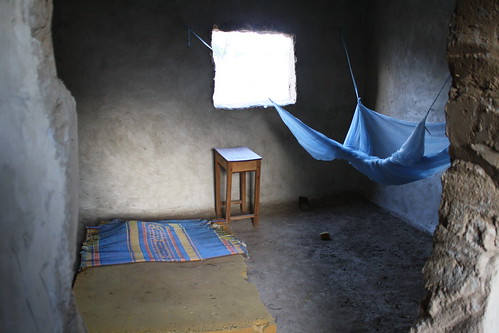
I have been absent from my post here in the blogosphere because I was on a 10-day trip to Ghana, West Africa. This wasn’t a mission trip, although I did attend to some “mission business” (an oxymoron?) while there, carrying out some administrative tasks on behalf of the partnership Barrie Free Methodist Church has with the Free Methodist Church in Ghana. On a side note, this Canada-Ghana partnership will be featured in the upcoming MOSAIC, if I hurry up and submit my article to Lisa Howden so she can publish it already.
I was in Ghana this time because I’ve recently sold the fair-trade business I started in Canada after our two-year short-term (another oxymoron?) mission. I was introducing the new owners of the business to their Ghanaian partners and suppliers, the hard-working, resourceful people who make the recycled glass beads, elephant grass baskets, and beautiful cotton batik cloth, which have gained popularity in our corner of the world.
All that to say, whether on business or mission, each time I travel to Ghana, I am challenged by the encounter.
We travelled to the top of the country to an area called Bolgatanga. The women there make baskets for income, but live off the land, farming and raising livestock for their food. They sleep in mud compounds with thatch or tin roofs. They own few material possessions. It was painfully obvious that the lifestyle we are accustomed to is worlds apart.
While we stayed here,
they slept here.

It didn’t feel right for our differences to be in such close proximity to one another.
The hotel where we were staying is in the process of building a pool, which will be open next year. The 40 degree heat made us wish that it was ready right now please. On the other hand, we’d have to ignore some realities very close by in order to have the freedom to enjoy it.
And yet, is the answer for us to sleep where they sleep? Would it make sense for us to give up our homes, our jobs, our businesses in order to start farming the land or living in a mud hut?
Inevitably, after a visit to this reality, one brings a new perspective home as a souvenir. I return to my home, look around and ask, why do I have all this stuff? What do I really need?
I remember when it surprised me to discover that I was needier than a Ghanaian in a mud hut. Modern day conveniences have incapacitated me, so that I rely on so much just to get through the day. If we had a food shortage, I’d have no idea how to grow my own veggies or raise my own livestock. If I didn’t have electricity, how would I do my work? If I didn’t have access to running water, how would I brush my teeth or shower or wash my clothes or… If I didn’t have Google, how would I know anything?
There was a rain storm one of the nights we were in Bolga. The next morning I saw our Ghanaian host use the water from a puddle that had accumulated in a plastic chair to wash his hands. It came naturally to him. I can honestly say I would never have thought of a puddle on my patio furniture as useful.
Perhaps that would change if I were forced to live in the situation. But would I choose it? Should I choose it?
In the passage of the rich man who asks Jesus what he must do to inherit eternal life, Jesus instructed him to sell all he had and give it to the poor. I believe the passage is intended to challenge us all to release the things we hold onto tightly, the things we put in place of God, in order for God to be at the centre of our lives. Jesus’ instructions were about what it takes to be perfect. They were about generosity.
Jesus acknowledges that he’s asking the impossible of the rich man. He always asks the impossible – to take the focus off ourselves and put it on God and others. He knows that in our humanness, we can’t possibly do it. But he also promises that with God it is possible!
A human response to poverty is to feel fearful or threatened by it.
A Godly response to poverty is to see our fellow humans with value beyond their circumstances, to minister to them and meet their needs.
A human response for the rich is to hold on tightly to our wealth and trust in it as security.
A Godly response for the rich is to be generous, understanding we’ve been entrusted with a blessing that was meant to be given.
I certainly don’t have the particulars of what this Godly challenge looks like for every individual. Lord knows I’ve struggled with the details for many years.
I do not believe it means the entire world living in mud huts, without electricity. But it does mean letting go of the hold our wealth has on us (and in some cases that literally means selling what we have). It means listening to the wisdom of Jesus and letting it resound above all other voices. It means practicing true generosity, putting others above ourselves. It means relying on God to lead the way.
It means accepting the challenge of doing the impossible.




